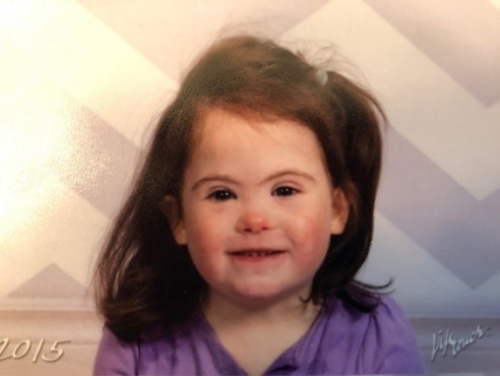Related Content
Press Release
This is archived content from the U.S. Department of Justice website. The information here may be outdated and links may no longer function. Please contact webmaster@usdoj.gov if you have any questions about the archive site.
2020 marks the 30th anniversary of President George H.W. Bush signing the Americans with Disabilities Act (ADA) into law. Throughout this 30th anniversary year, the division is publishing blog posts highlighting the impact that our recent ADA enforcement efforts have made in people’s everyday lives. We celebrate the many ways in which the ADA has transformed American society and enabled a generation of Americans with disabilities to thrive. At the same time, we recognize that many barriers to equal opportunity still exist. We recommit to our work of making the promise of the ADA a reality, enabling all Americans with disabilities to achieve their dreams and reach their full potential.
United States v. Nobel Learning Communities, Inc.
Despite being thirty years after the enactment of the ADA, many children with disabilities and their families continue to face discrimination in child-care programs. This discrimination includes outright intentional exclusion, architectural and communication barriers, failure to make modifications to existing practices, and exclusionary qualification standards and criteria. The Justice Department’s Civil Rights Division and U.S. Attorney’s Offices are committed to ensuring that children with disabilities and their families enjoy equal access to child-care programs, free from all forms of disability discrimination.
In a recent case, the Justice Department entered into a settlement agreement with Nobel Learning Communities Inc. n/k/a Spring Education Inc. d/b/a Chesterbrook Academy (Spring Education), one of the country’s largest providers of child care from infancy through school age. The United States alleged that Spring Education violated Title III of the ADA when it refused to make reasonable modifications to its toileting policy for children with disabilities, and then, at one of its New Jersey centers, expelled a child, Margaret (Maggie) Miller, because she had toileting delays related to her disability, Down syndrome.


Maggie started attending Spring Education when she was six-months old. At that time, Spring Education provided children in its care with toileting assistance through the infant and toddler stages. Maggie was three-years old when Spring Education set a deadline for her to become toilet-trained. When Maggie still needed toileting assistance as the deadline neared, Spring Education told Maggie’s parents that she would be expelled the following week.
Maggie’s parents provided Spring Education with medical documentation explaining that toileting delays are common in children with Down syndrome and asked the center to modify its policy to continue to provide Maggie with assistance, as they had in the past, while she and her family continued to work on toilet training. Indeed, the department has explained, in longstanding technical assistance, that, generally, child care centers that provide personal services such as diapering or toileting assistance for young children must reasonably modify their policies and provide diapering services for older children who need it due to a disability. Spring Education refused to modify its policy or extend its deadline, and Maggie was expelled.
After Spring Education expelled Maggie, her parents had to quickly find another child-care provider for Maggie and her baby sister, who also attended Spring Education. Staff at the new child-care center provided Maggie with toileting assistance and supported her toilet training progress at a pace that was developmentally appropriate. In turn, Maggie gained confidence and greater toilet training.


Asked why they filed a complaint with the deparmtent, the Millers said they believed that Spring Education “treated Maggie unfairly because of her disability.”
Under the terms of the settlement agreement, Spring Education must provide reasonable modifications for children with disabilities that affect their ability to be toilet-trained. Spring Education also must inform current and prospective families about the new toileting policy; train current and future employees on the new policy; and pay a $30,000 civil penalty to the United States.


To read the settlement agreement, please click here; to read the complaint, please click here.
To learn more about the ADA’s history and impact, please visit the department’s ADA Anniversary webpage, which includes this and other blog posts honoring Faces of the ADA. To learn more about the department’s ADA work generally, see www.ada.gov or call the department’s toll-free ADA Information Line at 800-514-0301 (TDD 800-514-0383).